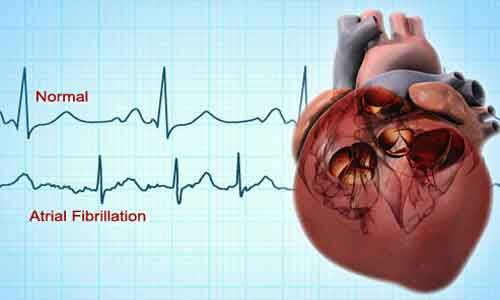- Home
- Medical news & Guidelines
- Anesthesiology
- Cardiology and CTVS
- Critical Care
- Dentistry
- Dermatology
- Diabetes and Endocrinology
- ENT
- Gastroenterology
- Medicine
- Nephrology
- Neurology
- Obstretics-Gynaecology
- Oncology
- Ophthalmology
- Orthopaedics
- Pediatrics-Neonatology
- Psychiatry
- Pulmonology
- Radiology
- Surgery
- Urology
- Laboratory Medicine
- Diet
- Nursing
- Paramedical
- Physiotherapy
- Health news
- Fact Check
- Bone Health Fact Check
- Brain Health Fact Check
- Cancer Related Fact Check
- Child Care Fact Check
- Dental and oral health fact check
- Diabetes and metabolic health fact check
- Diet and Nutrition Fact Check
- Eye and ENT Care Fact Check
- Fitness fact check
- Gut health fact check
- Heart health fact check
- Kidney health fact check
- Medical education fact check
- Men's health fact check
- Respiratory fact check
- Skin and hair care fact check
- Vaccine and Immunization fact check
- Women's health fact check
- AYUSH
- State News
- Andaman and Nicobar Islands
- Andhra Pradesh
- Arunachal Pradesh
- Assam
- Bihar
- Chandigarh
- Chattisgarh
- Dadra and Nagar Haveli
- Daman and Diu
- Delhi
- Goa
- Gujarat
- Haryana
- Himachal Pradesh
- Jammu & Kashmir
- Jharkhand
- Karnataka
- Kerala
- Ladakh
- Lakshadweep
- Madhya Pradesh
- Maharashtra
- Manipur
- Meghalaya
- Mizoram
- Nagaland
- Odisha
- Puducherry
- Punjab
- Rajasthan
- Sikkim
- Tamil Nadu
- Telangana
- Tripura
- Uttar Pradesh
- Uttrakhand
- West Bengal
- Medical Education
- Industry
Double antithrombotic therapy better in reducing bleeding risk in AF patients after PCI, says study

Delhi: Double versus triple antithrombotic therapy (DAT vs. TAT) is associated with a reduction in bleeding events in patients with atrial fibrillation (AF) patients undergoing percutaneous coronary intervention (PCI), a recent study in the European Heart Journal has suggested.
According to the study, DAT, particularly if consisting of a NOAC (non-vitamin K antagonist oral anticoagulant) instead of vitamin K antagonist (VKA) and a P2Y12 inhibitor lowers the risk of bleeding, including major and intracranial hemorrhages. However, this benefit is counterbalanced by a higher risk of cardiac—mainly stent-related—but not cerebrovascular ischaemic occurrences.
Marco Valgimigli, University of Bern, Bern, Switzerland, and colleagues investigated the safety and efficacy of DAT versus TAT in patients with atrial fibrillation and acute coronary syndrome (ACS) or who underwent percutaneous coronary intervention.
For the purpose, the researchers performed a systematic review and meta-analysis using online databases to search for NOAC-based randomized clinical trials comparing DAT versus TAT in AF patients undergoing PCI. Four trials including 10 234 patients (DAT = 5496 vs. TAT = 4738) were included.
Key findings of the study include:
- The primary safety endpoint (ISTH major or clinically relevant non-major bleeding) was significantly lower with DAT compared with TAT [risk ratio (RR) 0.66], which was consistent across all available bleeding definitions.
- This benefit was counterbalanced by a significant increase of stent thrombosis (RR 1.59) and a trend towards higher risk of myocardial infarction with DAT.
- There were no significant differences in all-cause and cardiovascular death, stroke and major adverse cardiovascular events.
- The comparison of NOAC-based DAT vs. vitamin K antagonist (VKA)-TAT yielded consistent results and a significant reduction of intracranial hemorrhage (RR 0.33).
"Compared with TAT, DAT, particularly when based on NOACs, is associated with a reduction in bleeding complications, including major and intracranial hemorrhages. However, this benefit is counterbalanced by a higher risk of ischaemic, mainly stent-related, events," concluded the authors.
The study, "Safety and efficacy outcomes of double vs. triple antithrombotic therapy in patients with atrial fibrillation following percutaneous coronary intervention: a systematic review and meta-analysis of non-vitamin K antagonist oral anticoagulant-based randomized clinical trials," is published in the European Heart Journal.
Dr Kamal Kant Kohli-MBBS, DTCD- a chest specialist with more than 30 years of practice and a flair for writing clinical articles, Dr Kamal Kant Kohli joined Medical Dialogues as a Chief Editor of Medical News. Besides writing articles, as an editor, he proofreads and verifies all the medical content published on Medical Dialogues including those coming from journals, studies,medical conferences,guidelines etc. Email: drkohli@medicaldialogues.in. Contact no. 011-43720751


